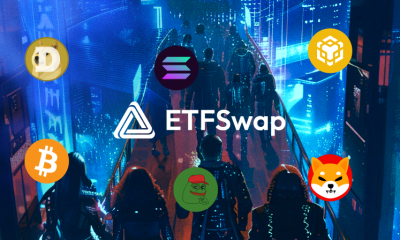Crypto and Blockchain News
G7 Report Does Not See Future for Cryptocurrencies

A report published by G7 and Bank of International Settlements (BIS) states that cryptocurrencies have failed to provide an attractive, reliable means of payment or store of value.
According to a report, cryptocurrencies are not a solution to today’s financial infrastructure needs. They are highly volatile, have scalability limits, complicated user interfaces, and issues in governance and regulation, among other issues.
“Сryptoassets have served more as a highly speculative asset class for certain investors and those engaged in illicit activities rather than as a means to make payments,” states the report
Stablecoins, designed to minimize the volatility of the price of the digital asset by being pegged to a fiat currency, or to exchange-traded commodities have no established international classification, but might be more readily usable as a means of payment and store of value. However, developers of such coins must meet all the necessary regulations first. The G7 group underlines that the benefits of faster and less expensive remittances offered by the stablecoins could be outweighed by the risks and challenges of unregulated operations.
“No global stablecoin project should begin operation until the legal, regulatory and oversight challenges and risks are adequately addressed, through appropriate designs and by adhering to regulation that is clear and proportional,” said G7.
The report concludes that the effects of stablecoins on monetary tools have yet to be fully understood as well.
However, at the same time, the G7 appears to understand that traditional financial infrastructure, is in many ways too slow and outdated to compete with digital finance, and recognizes that “cross-border payments remain slow, expensive and opaque, especially for retail payments such as remittances.
“Finance ministries, central banks, standard-setting bodies and international organizations should continue their efforts to promote faster, more reliable and less costly payment systems for both domestic and cross-border purposes, using new technology where appropriate, and in a globally consistent and coordinated manner.”
Furthermore, G7 report advises participating governments to develop road maps for improving efficiency and lowering the cost of payments and financial services.













